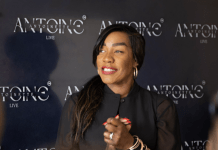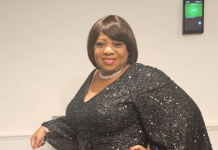To continually persevere and never feel discouraged from achieving your goals, is the kind of determination that is required when becoming a successful entrepreneur. Wioletta, Founder of We Involve, is the human embodiment of “never give up on something you believe in.” She shares her journey on how she overcame obstacles to reach her destination, realise her dream and provide others with the same opportunities.
“We teach our clients not to quit, take a break and rest. As, when you restart after a break, you never start from scratch. You restart with experience.”
What were your aspirations in your early years and how did they influence who you are today?
I always wanted to be a business doctor – to innovate and help people rebuild their businesses and make them healthier. Unfortunately, I was not able to go to business school to study, as it was too expensive. I was born in a small industrial city in Poland. My father was addicted to alcohol and most of the time I heard, “We do not have money.” I was not even able to go to university, until my amazing neighbours guaranteed my student loan. However, the loan was only to cover the cost of living, not private business study. My father took his own life, just as we were about to lose our flat. I finished my master’s degree in social sciences and psychology and was accepted to a Ph.D. programme, but I could not afford to go. Instead, I took one suitcase and got on a flight to London, despite not speaking English. I managed to get a job, cleaning toilets in a hotel.
I could have refused to do that kind of work. I could have stayed in Poland. I could have done many safe, easier things. Yet, I moved to a foreign country where I could not speak the language, I took any available job and worked towards my dream. A few years later, I did my MBA in Innovation and Business. When my husband and I moved to Switzerland in 2011, whilst I was pregnant, I was sure my work life would be easier. But it was not. It was a different country and culture… and I was a mother. I soon discovered that not everyone will hire a mother. In one job interview I was told, “Oh… you have a child. We are looking for committed people.” Now I am a mother of three and I am running my own business.

Before you became an entrepreneur, what was your career field, and did you feel fulfilled?
I decided I was going to work at one of the best banks in the world, based in Switzerland. I thought this would be much easier since I had gained an MBA in Entrepreneurship and Innovation and spoke English well by this point. It took longer than I expected to figure out the system, but I did not give up until I landed a job there as a change agent.
When they newly opened an innovation unit, I knew I wanted to be a part of that. So, I shadowed the unit manager and worked two jobs until I could work full time in the unit. I ran the Global Innovation Unit for the bank and delivered significant crowdsulting projects, where we consult people to equip them with leadership and problem-solving skills. I created my dream job and consulting company within the bank. I trained hundreds of top executives on innovation. It was a journey of challenges and passion that transformed how we do business, right up to the moment when I decided it was time to step out on my own. I founded weinvolve to share those tactics, tools, and systems with the world. My pain was my biggest success. I always had so many ideas in my head and a big vision. So, I created my own company, centred around helping others to innovate for worthy causes.
What was your overall experience of venturing off on an entrepreneurial journey?
The past two years have been a rollercoaster, right from the very beginning. We received confirmation of a five million Swiss Franc contract, hours before the first national COVID-19 lockdowns. We were notified that the contract would be put on hold indefinitely the same day. Surrounded by fear and loss, we chose to focus on the positives and act fast. In 2 weeks, we redesigned the program and had a group of two hundred people on Facebook. Our Act of Kindness Challenge helped people reinvent themselves, find new ways of living, and new businesses. That 60-Day Challenge became the basis for our Smart-Up programme. We were running a marathon like a sprint. Until then, I had been managing a huge team rather than leading them. I learned the biggest lessons in leadership and lost lots of people along the way.
We also have a dream to create a Human Valley to rival Silicon Valley, but with humans at the heart of everything. We found and fell in love with a hotel in the Swiss Chalet style at Interlaken, secured a large investment, and entered negotiations to buy. Long story short, we were eaten by sharks and lost a lot of money there. As a result, we were forced to take a strategic break. We reassessed our strengths, re-evaluated our goals and scaled back plans. As a company, we had to pivot to meet the current reality. We teach our clients not to quit, take a break and rest. As, when you restart after a break, you never start from scratch. You restart with experience.

As someone with a background in Psychology, you are fascinated by how people think and act. How do you relate and use this fascination with helping people grow their businesses?
We use the latest neuroscience and psychological principles to build programs that ensure rapid learning, with the possibility of innovation and reinvention. We design every experience to give participants “eureka!” moments that bring what we are talking about to life and cement them in memory. We talk a lot about the Knowing-Doing gap, because too often there are situations where we know what we should do, but we do not do it. That is why we focus on the combination of the brain, power, and the heart; connecting knowledge with emotions, to stimulate action.
What advice would you give, as a business doctor, to those who wish to start or improve their business?
Start small. You do not need to build a website, get a logo design, or rent office space to get started. You just need an idea and a way to assess it, so that you can bring what you offer to the market. Build prototypes with feedback from your clients, so that you know what they want, and they will love you for it. Get them out as soon as possible, and then focus on improving the quality as you go. So many people spend so much time tinkering with their idea, trying to make everything perfect before they share it with anyone. But perfect for who? What is perfect to you may be terrible to your clients. You will never be ready. No one ever is. That can be scary, but there is also freedom in it. It means you are free to iterate, grow and get better every day. Be brilliant, not perfect. Perfectionism is just a form of procrastination that kills productivity.

If you could do things differently, knowing then what you know now, what would you change about your entrepreneurial experience?
In hindsight, there are many things I would change for the better. I would have collaborated with more mentors and surrounded myself with the right people. I would have started my venture earlier, even though I never thought it was possible, it was always my dream. Of course, we do not all have that benefit of chasing our dreams. We are all just doing the best we can with what we have. If we could do better, we would. What matters is that we learn from our past mistakes and those of others, so that we do not keep repeating them but get better over time. I always tell my clients not to worry about competing with other businesses or other people, or about beating them. Instead, you must focus on beating your past self by being better tomorrow than how you are today. The rest will come.












